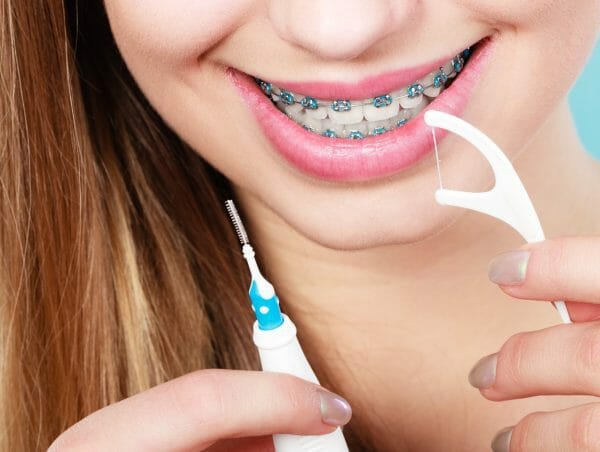Exploring the Effects of Braces and Invisalign
Orthodontic treatment, often involving the use of braces or Invisalign, is a popular method to correct misaligned teeth and achieve a beautiful smile.
Recent scientific advancements have shed light on the intricate relationship between orthodontics and the human microbiome. The microbiome refers to the vast community of microorganisms that reside within our bodies, playing a crucial role in our overall health.
This article will delve into the impact of orthodontic treatment on the microbiome to provide patients with a better understanding of this topic.
Understanding the Microbiome
The human microbiome is a complex ecosystem of bacteria, viruses, fungi, and other microorganisms that colonize various parts of our body, including the mouth. These microorganisms play a vital role in maintaining our health by aiding in digestion, supporting the immune system, and even influencing our mental well-being.
The oral microbiome is home to a diverse array of microbial species that interact with each other and the patient’s oral tissues.

Braces and the Oral Microbiome
Traditional braces, consisting of brackets and wires, have long been a popular choice for orthodontic treatment. However, the presence of these fixed appliances poses unique challenges to the oral microbiome.
The brackets and wires create crevices and tight spaces that can harbor food particles and plaque, leading to an accumulation of bacteria. This increased bacterial load can disrupt the balance of the oral microbiome, potentially leading to an overgrowth of harmful bacteria and an increased risk of oral health issues, such as tooth decay and gum disease.
Burke & Redford Orthodontists: A Commitment to Oral Health
Burke & Redford Orthodontists have recognized the importance of maintaining a healthy oral microbiome during orthodontic treatment. As leaders in the field, they emphasize patient education and hygiene practices to mitigate the potential negative effects of braces on the microbiome.
Patients are provided with comprehensive guidance on proper oral hygiene techniques, including brushing and flossing around the brackets and wires, as well as using mouth rinses to reduce bacterial buildup.

Invisalign and the Oral Microbiome
In recent years, Invisalign has emerged as a popular alternative to traditional braces. These clear aligners offer numerous advantages, including improved aesthetics, removability, and enhanced comfort.
When it comes to the oral microbiome, Invisalign aligners offer a potentially favorable environment compared to traditional braces. As they are removable, patients can more easily maintain their oral hygiene routine, reducing the risk of bacterial accumulation.
Furthermore, Invisalign aligners do not have brackets or wires that create additional spaces for food debris and plaque buildup. This can help preserve the natural balance of the oral microbiome throughout the course of treatment. However, it is still crucial for patients undergoing Invisalign treatment to follow proper oral hygiene practices to ensure optimal microbiome health.

Frequently Asked Questions about Orthodontics and Oral Health
- Can braces increase the risk of tooth decay and gum disease?
Yes, braces can increase the risk of tooth decay and gum disease if proper oral hygiene is not maintained. The presence of brackets and wires can make it more challenging to clean the teeth effectively.
On the other hand, tooth decay and gum disease are completely preventable with good oral hygiene. Regular brushing and flossing, along with routine dental check-ups, are essential to prevent oral health issues during orthodontic treatment.
- How can I maintain a healthy oral microbiome while wearing braces?
To maintain a healthy oral microbiome with braces, it is important to follow a consistent oral hygiene routine. This includes brushing after three times a day, using a soft-bristle toothbrush and fluoride toothpaste. Flossing should also be done daily, using specialized floss threaders or interdental brushes to clean between the brackets and wires. Additionally, using an antibacterial mouth rinse can help reduce bacterial buildup.
- Are there any special precautions I need to take if I choose Invisalign aligners?
Invisalign aligners offer a potentially more favorable environment for the oral microbiome compared to traditional braces. However, it is still important to maintain good oral hygiene practices. Remove the aligners when eating or drinking (except water) and brush your teeth before putting them back in. Clean the aligners regularly using a mild, non-abrasive cleanser and avoid exposing them to hot temperatures.
- Can orthodontic treatment have long-term effects on the microbiome?
While orthodontic treatment may temporarily disrupt the balance of the oral microbiome, studies suggest that with proper oral hygiene practices, the microbiome will return to its normal state after treatment. However, it is always important to maintain good oral hygiene habits even after treatment to support a healthy microbiome in the long run.
- How do Burke & Redford Orthodontists prioritize microbiome health during treatment?
Burke & Redford Orthodontists place a strong emphasis on patient education and hygiene practices to ensure microbiome health during orthodontic treatment. Their team provides comprehensive guidance on proper oral hygiene techniques, offers regular check-ups to monitor oral health, and recommends specific products such as an antibacterial mouth rinse to help minimize the impact on the oral microbiome.
Call Burke & Redford Orthodontists at (951) 699-8011 during business hours to schedule an orthodontic consultation with Dr. Ryan Redford today or fill out the consultation form through our website.
